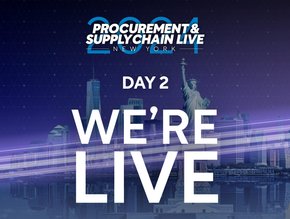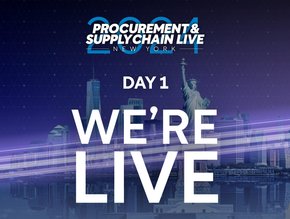Surge in Container Ship Orders 'Will Ease Red Sea Crisis'

In a fortuitous twist of fate, the lingering impact of the global pandemic is set to ease supply chain problems caused by ongoing disruption caused by Red Sea attacks on commercial shipping.
During the pandemic, the massive spike in world trade fuelled a huge increase in demand for new container vessels from the major carriers.
Those ships, ordered up to three years ago, are now entering service, and are set to help beleaguered shipping companies maintain regular service, as the Red Sea situation forces vessels to travel longer distances, around the African Cape.
Speaking to the NY Times, Gartner Senior Director & Analyst Brian Whitlock said: “There’s a lot of available capacity out there, in ports and ships and containers.”
According to figures from The Baltic and International Maritime Council (BIMCO), in 2023 global shipyards delivered 350 new containerships that have a total capacity of 2.2 million TEU. (TEU stands for Twenty-foot Equivalent Unit, and is a unit of measurement for cargo capacity for container ships and terminals.)
This beats the previous record, set in 2015 when new vessels meant an extra 1.7 million TEU was delivered.
BIMCO says that in 2024, a total of 478 container ships – with a capacity of 3.1mn TEU – are scheduled for delivery. This is 41% more than in 2023, and means global container fleet capacity will grow by 10% in 2024, BIMCO’s Chief Shipping Analyst Niels Rasmussen has said.
Red Sea attacks see shipping prices soar
Ongoing attacks on merchant vessels in the Red Sea have delayed cargo and seen shipping costs soar.
But analysts from Moody's Investor Service say ample ship availability – coupled with soft demand – are “muting the impact on inflation”.
The Red Sea attacks mean that ships carrying everything from furniture and apparel to food and fuel are being diverted away from the Suez Canal and forced to take the longer and more expensive route around Africa.
The effects of the Red Sea attacks on global trade have been outlined in a new report from The UN Conference on Trade and Development (UNCTAD).
Its report, ‘Navigating Troubled Waters’, looks at the impact on global trade of sea shipping disruption caused not only by the Red Sea attacks, but also the ongoing drought affecting the Panama Canal and the effects of the war in Ukraine on Black Sea oil and grain trade markets.
UNCTAD says Suez Canal transits have fallen by 42% compared to its peak, with weekly container ship transits falling by 67%, and container carrying capacity, tanker transits, and gas carriers also seeing significant declines.
Total transits through the Panama Canal plummeted by 49% compared to its peak.
The report says that ships avoiding the Suez and the Panama Canals is translating into longer cargo travel distances, and rising trade costs and insurance premiums.
Trade disruption sees European gas price hike
UNCTAD adds that the economic implications of prolonged disruptions to container shipping “will be felt by consumers within a year”. It points out that energy prices are surging, due to reduced gas-transits, especially in Europe.
It adds that the crisis could also potentially impact global food prices, with disruptions to grain shipments from Europe, Russia, and Ukraine posing risks to global food security, “affecting consumers and lowering prices paid to producers”.
UNCTAD also estimates that higher shipping fuel consumption resulting from longer distances and higher speeds could result in a rise of as much as 70% in greenhouse gas emissions for a Singapore-Rotterdam round trip.
It warns that developing countries are especially vulnerable to these disruptions, and stresses the urgent need for “swift adaptations from the shipping industry and robust international cooperation to manage the rapid reshaping of global trade”.






